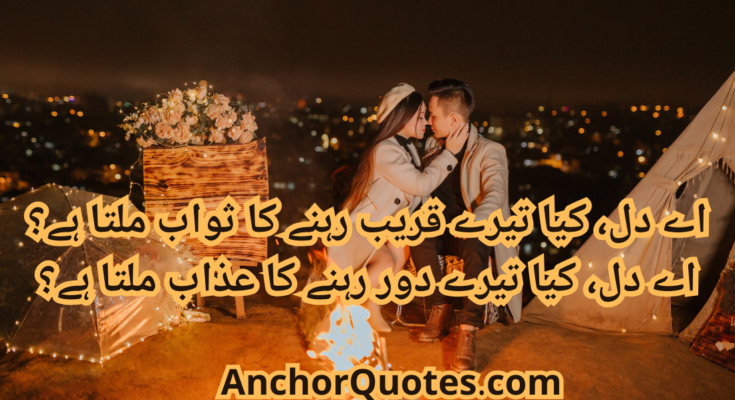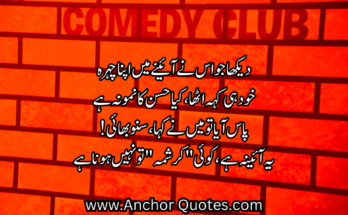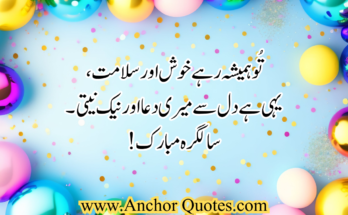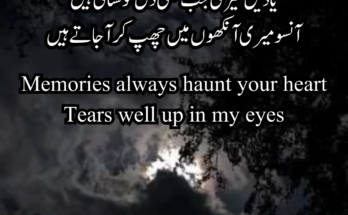Romantic Poetry In Urdu
Romantic poetry is a genre that emerged in the late 18th and early 19th centuries, characterized by an emphasis on emotion, nature, imagination, and individuality. It was a reaction against the rationalism and restraint of the Enlightenment era, celebrating the beauty of the natural world, the power of the imagination, and the intensity of personal feelings. Key themes in romantic poetry include love, longing, beauty, transcendence, and the sublime.
Romantic poets often explored the complexities of human emotions, delving into themes of unrequited love, loss, and the search for meaning and connection. Nature played a significant role in romantic poetry, serving as a source of inspiration, solace, and reflection. Poets frequently used natural imagery to convey their feelings and ideas, drawing parallels between the external world and the inner landscape of the human psyche.
Imagination was another central theme in romantic poetry, with poets celebrating its transformative power and ability to transport the individual beyond the constraints of reality. Dreams, fantasies, and visions were common motifs, allowing poets to explore themes of escapism, creativity, and the quest for freedom.
Romantic poetry also often reflected the spirit of rebellion and individualism, challenging established norms and advocating for personal expression and authenticity. Poets championed the idea of the “romantic hero,” a figure who defied societal conventions and followed their passions and ideals with courage and conviction.
Overall, romantic poetry is characterized by its emotive language, vivid imagery, and exploration of profound human experiences and emotions. It continues to resonate with readers today, offering insights into the complexities of love, longing, and the human condition.
Romantic Poetry | Romantic Poetry in Urdu
Heart break Quotes and Sad Shayari 2024
Romantic poetry emerged as a literary movement in the late 18th and early 19th centuries, characterized by a focus on emotions, individualism, nature, and imagination. It was a reaction against the rationalism and restraint of the Enlightenment era, seeking to explore the deeper realms of human experience and the mysteries of existence. The Romantics celebrated the beauty of nature, the power of imagination, and the intensity of human emotions, often expressing themes of love, longing, nostalgia, and the sublime.
One of the central themes in Romantic poetry is the idea of the sublime, which refers to experiences that are awe-inspiring, overwhelming, and transcendent. Poets like William Wordsworth, Samuel Taylor Coleridge, and Percy Bysshe Shelley captured the awe-inspiring beauty of nature and its ability to evoke powerful emotions in the human soul. Wordsworth’s “Lines Composed a Few Miles Above Tintern Abbey” reflects on the spiritual connection between nature and the human spirit, while Coleridge’s “Kubla Khan” explores the dreamlike realms of imagination and creativity.
Love and longing are also prominent themes in Romantic poetry, as poets delved into the complexities of human relationships and the intensity of romantic emotions. John Keats’ “Bright Star” expresses enduring love and the desire for immortality, while Lord Byron’s “She Walks in Beauty” celebrates the beauty and grace of a beloved woman.
The Romantic poets also rebelled against societal norms and championed individualism, valuing personal freedom and expression. They often portrayed the poet as a visionary and a prophet, capable of uncovering hidden truths and inspiring social change. Shelley’s “Ode to the West Wind” exemplifies this vision, as the poet invokes the wind as a symbol of change and renewal.
Overall, Romantic poetry is characterized by its passionate exploration of human emotions, its reverence for nature and the sublime, and its celebration of individuality and imagination. It continues to inspire readers with its timeless themes and evocative language, reminding us of the enduring power of poetry to capture the essence of the human experience.
زمانے کی روشنی میں، دل کی تمنا بہکتی ہے،
تیرے حسن کی محبت میں، دل کو چین ملتی ہے۔

تیری باتوں کی میٹھی محبتوں میں، دل کو سکون ملتا ہے،
تیری یادوں کی گہرائیوں میں، دل کو سجدہ کرنے کی راہ ملتی ہے۔

دل کی ہر دھڑکن، تیری یاد میں دھوبتی ہے،
تیری ہر مسکان، دل کو بہکانے کی جان ملتی ہے۔

محبت کی راہوں میں، دل کو تیرا ہمراہ بنانا ہے،
تیری محبتوں کی گہرائیوں میں، دل کو ڈوب جانا ہے۔

تیرے ہونٹوں کی مسکاں، دل کو بے قرار بناتی ہے،
تیری آنکھوں کی چمک، دل کو چمکنے کی راہ دکھاتی ہے۔

: محبت کی دھڑکن، ہر زخم بھر جاتی ہے،
: جیون کی سانسوں میں جاں بھر جاتی ہے
: تیری یادوں کی آہٹ میں، دل کی دھڑکن بہک جاتی ہے

بدھ ہو گئی رات، دل کی دھڑکنوں کی آوازیں سنی
محبت کی میثاقیں، خوابوں کی باتیں، دل کی تھانیں سنی

تیرے بغیر دن بھی تنہا، راتیں بھی سنسان ہیں
تیری یادوں کے ساتھ، دل کے جاں جاں، ہم بہکے تنہاں ہیں

چاندنی کی راتوں میں، تیری یادوں کی روشنی ہے
دل کی گہرائیوں میں، تیری آہٹوں کی سرگوشی ہے

تیری یادیں بکھری ہیں، میرے خیالات کے محراب پر
تیرے بنا ہر پل، میری روح کی سزاؤیں ہیں

محبت کی باتیں، نغمے، گیت، سوالات، جوابات تیری آواز
، تیری مسکراہٹ، تیری محبت کی ایک خوبصورت آفاقات

دل کی دھڑکنوں کی زبان، محبت کی کہانی کہتی ہے
تیری یادوں کی سرزنشیں، میرے دل کو جگاتی ہیں

تیری یادوں کے ماں، جاناں، راز، راہ،
روشنیاں میری زندگی کی تصاویر، تیری یادوں کے کونے

محبت کی ایک ادا، تیری یادوں کی گہرائی ہر دم تیری یادوں میں
، میرے دل کی خوشبو، تیرے خوابوں کی ریتیں










